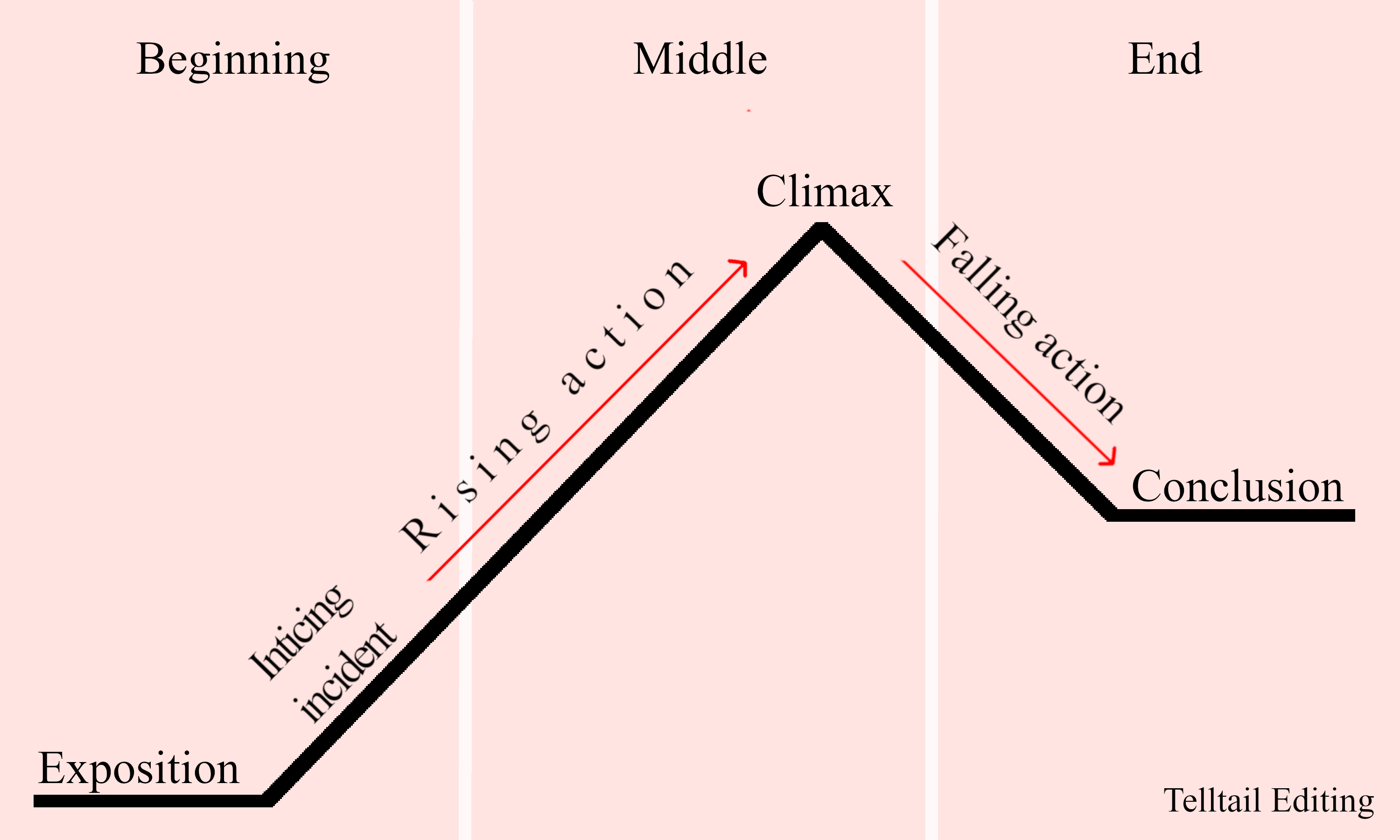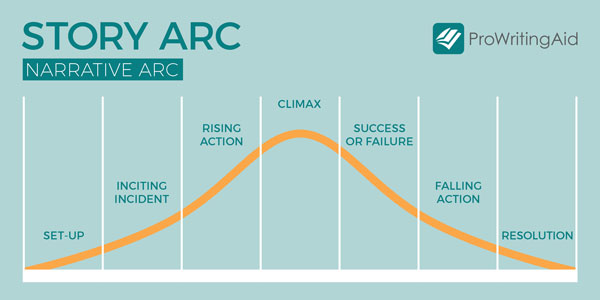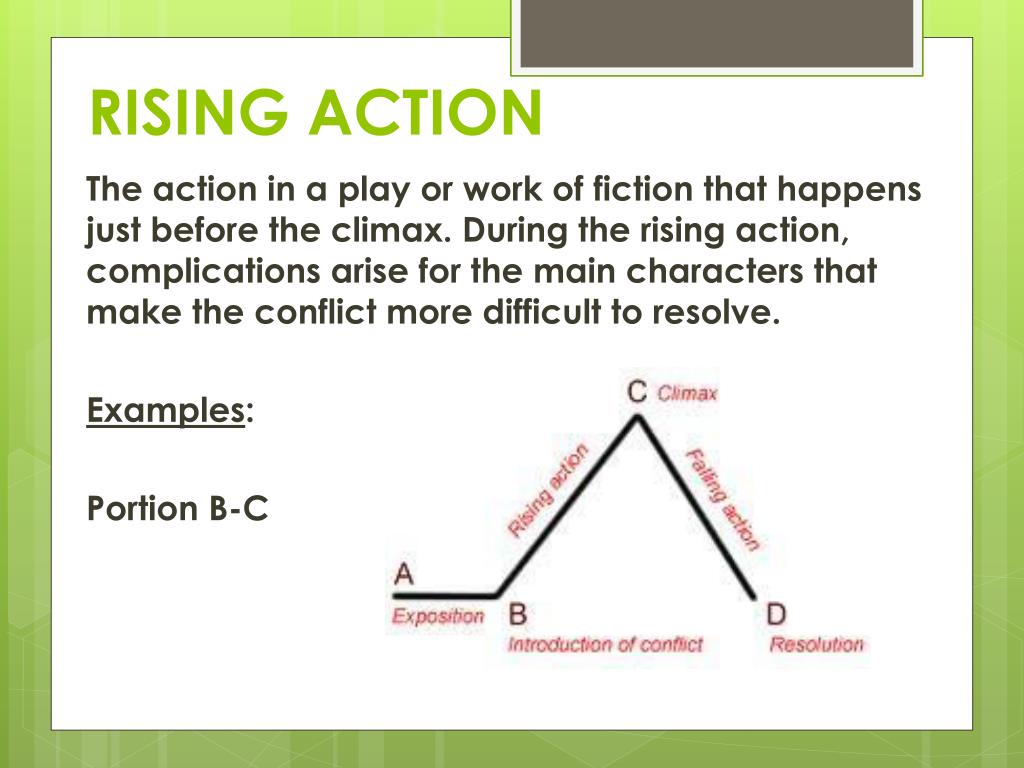Deus Ex Machina
-
Douglas Mercer
- Posts: 10948
- Joined: Tue Mar 28, 2023 7:29 pm
Deus Ex Machina
Douglas Mercer
November 16 2024
When they don’t know what to say
And have given up on the play
With a finger we lift the machine
When a reviewer alludes to an ending being akin to Deus Ex Machina it’s not a compliment; he is saying that the ending is arbitrary and unsatisfying; that the drama did not unfold and conclude along natural lines or organically but was cut off in if not quite midstream then certainly prematurely and peremptorily; that it was ended by a makeshift plot device in a way that was ham handed, or even by a high handed manner. And implicit in this criticism is the idea that the reviewer thinks the author a very bad one indeed and, more than anything, one who after a successful build up had simply ran out ideas, and so in one fell swoop without tying up loose ends or achieving a crescendo had the (supposedly) random event come in out of the blue or out of nowhere and so put a stop to the action. It would be like in a play where a gun had been put on the mantle and instead of going off at the proper time the characters are suddenly seized by a fatal illness of which there had been no prefiguration; and as the bodies lie lifeless the powder in the gun was kept dry.
***
SUSPENSION OF DISBELIEF
For any drama or story the audience must grant the author his conceit and his premise; whatever is illogical in it they must ignore; they must enter into the drama vicariously and live it out as a character in the play might; and whatever is off kilter about it they must accept with good faith and on principle provided the author tells the story with an internal coherence. That is a good reader or viewer must be willing to believe and to become a partner in a folie a deux and collude in whatever delusion is being performed. If one is too strict about the niceties of the truth strictly speaking (rather than truth in the larger sense) one may well be a critic, even a good one, but not a participant or a secret sharer in whatever it is that is being enacted on the stage or in the rite.
EXPOSITION
The exposition is when the author tells us all about the characters, who they are, their back stories, their histories, where they are from, who their families were, and where they have been. In any drama we need to know the baseline of the action, where the forces of powers are, what the characters want, what they value, and what they view as their ideal future. Some stories start in the middle of things (in media res) while some start at the beginning, and some at the end and then work backwards, and some are jumbled up as to the sequence, using foreshadowing, or long narratives of analepsis, where something that happens early is told late. But all stories have the seeds of the ultimate action at every point, and the exposition is meant to orient the reader or audience toward this inevitable climax.
RISING ACTION
This rising action is what everyone likes best; this is the fast onrushing of time where the various forces and values like cross winds confront each other in conflict; the fate of the characters is inscribed in who they are, that is why they are called characters; the drama can be a flat one, or it can be high melodrama, but in the best there is a razor’s edge of action and much twisting and turning, many reversals, and long stretches of process and development; but always the action is coming to a head, the action is always pointing toward some future resolution; any plot point or plot device which is not constructed toward this end is said to be extraneous and not fit and proper to be a part of the drama per se though, it must be said, what seems random at best in an earlier part of the story may prove crucial when the final moment is reached. From time-to-time red herrings will be introduced into the narrative but axiomatically they form no part of the rising action but tend to divert and retard the onward speed of the story.
CLIMAX
One can tease this as long as one wants, indeed the more delay there is, the more poignant the climax and the greater the crescendo. That is delay and more delay makes the final summit or apogee all the more exquisite; the rising action is where the characters who had their exposition unfold their potentialities and they meet their fate. The climax in a story is the point, usually near the end of the third act, where the value of the story is tested to its highest degree. As such, it is also the pivotal moment in a story with the greatest amount of drama, action, and movement as the character makes a choice (related to the central conflict) as presented by their dilemma or crisis. It is this crisis point where the true values of the story are shown, and all the various threads of the plot rise and converge in a single point and so one begins to see the plot in its wholeness as a seamless web where even the most seemingly random of details is shown to be essential. The climax is when, as is said in the vernacular, the rubber finally hits the road, and so closure can occur.
DENOUEMENT
In a literary work the denouement is the resolution of the plot that occurs after its climax. It is the final moment in a fictional work, the closing sequence after the climax of the story. Denouement is an aspect of a narrative that gives context and resolution to a major theme, relationship or event in the story. It can be explicit, implicit or both. Falling action is the portion of the story which follows the climax with a resolution of the plot’s central tension or conflict. That is in the denouement the high drama or the tense melodrama has subsided and in the cool of the evening one sees how splendid the drama really was. The purpose of the denouement is that it follows the falling action, it ties up loose ends and answers unanswered questions, or it can serve as an epilogue. It may not always feel like a resolution but when it ends the story ends and the final outcome of the main dramatic complication in a novel, play, or film is said to be over, however complex the sequence of events. It is the final moment in a fictional work.
DEUS EX MACHINA
An unexpected power or event saving a seemingly hopeless situation, especially as a contrived plot device in a play or novel. Deus Ex Machina (English: god from the machine) is a plot device whereby seemingly unsolvable problems in a story are suddenly or abruptly resolved by an unexpected and unlikely occurrence. Its function is generally to resolve an otherwise irresolvable plot situation, to surprise the audience, to bring the tale to a suitable conclusion, often called the twist at the end which is unforeseen for to bar the unforeseen is impossible.
Deus Ex Machina is a plot device in literature where an unsolvable conflict or point of tension is suddenly and irreversibly resolved by an unexpected appearance of an implausible character, object, action, ability, or event. It was first used in ancient Greek and Roman drama where it referred to the timely (or untimely) appearance of a god to unravel and resolve the tangled plot. Deus Ex Machina is a Latin calque from Greek meaning god from the machine. The term was coined from the conventions of ancient Greek theater, where actors who were playing gods were brought on stage using a machine. The machine could be either a crane (mechane) used to lower actors from above or a riser that brought them up through a trapdoor. Aeschylus introduced the idea and it was used often to resolve the conflict and conclude the drama. The device is associated mostly with Greek tragedy. Aristotle was the first to use a Greek term equivalent to the Latin phrase Deus Ex Machina to describe the technique as a device to resolve the plot of tragedies. It is often looked on as undesirable in writing and often seen to imply a lack of creativity on the part of the author. The reasons for this are that it damages the story's internal logic and is often so unlikely that it challenges the reader's suspension of disbelief. The Deus Ex Machina device is often criticized as inartistic, too convenient, and overly simplistic. However, champions of the device say that it opens up ideological and artistic possibilities.
Nietzsche argued that the Deus Ex Machina creates a false sense of consolation that ought not to be sought in phenomena. His denigration of the plot device has prevailed in critical opinion. That is the German philosopher thought that the Deux Ex Machina was an illegitimate plot point forgetting that it is the sovereign who makes the exception and his law will always be the most High Handed.
Deux Ex Machina: A god introduced by means of a crane in ancient Greek and Roman drama to decide the final outcome; a person or thing (as in fiction or drama) that appears or is introduced suddenly and unexpectedly and provides a contrived solution to an apparently insoluble difficulty.
Deus Ex Machina is Latin for a god from the machine. It’s when some new character, force, or event suddenly shows up to solve a seemingly hopeless situation. The effect is usually unexpected, and it’s often disappointing for audiences. It’s as if the author has brought us to the climactic moment of tension and suspense, and then simply said “but then everything was suddenly OK.” It undermines the tension of the story, and seems to suggest that sheer blind luck is the ultimate determining force in the hero’s life. How unsatisfying!
The original phrase referred to a scene in Greek theater where a god (actor) would be lowered in on a mechanical crane to set everything straight at the end of a play.
The New Latin term Deus Ex Machina is a translation of a Greek phrase and means literally a god from a machine. Machine, in this case, refers to the crane that held a god over the stage in ancient Greek and Roman drama. The practice of introducing a god at the end of a play to unravel and resolve the plot dates from at least the 5th century B.C.; Euripides (circa 484-406 B.C.) was one playwright who made frequent use of the device. Since the late 1600s, Deus Ex Machina has been applied in English to unlikely saviors and improbable events that bring order out of chaos in sudden and surprising ways.
Deus Ex Machina is a Latin term that means god from the machine. It refers to devices used in ancient Greek theaters to dramatically bring a god (played by an actor) onto the stage. Typically, the sudden appearance of a deity would lead to the resolution of all conflicts and a happy ending to the play. Nowadays, the term is used to describe an unexpected turn of events in a story that brings a convenient—and highly unlikely—resolution to a crisis. Deus Ex Machina differs from a plot twist in that the writer doesn’t leave any clues in the preceding scenes or chapters about the extraordinary outcome. Instead, the change in the hero’s fortunes comes as a complete surprise to the audience.
***
Aristotle famously said that the point of drama was to purge the audience of its excess of emotion; to provide a catharsis for the viewer so he could leave the theater in a state of moral and mental equilibrium. Today when a reviewer alludes to an ending being akin to Deux Ex Machina they are saying that it was arbitrary and unsatisfying and that the drama or story did not unfold and conclude naturally or organically but was cut off in midstream in an arbitrary, ham handed, capricious or high handed manner. As when suddenly the drama becomes too intense, and the plot becomes too outrageous, and the characters refuse to take on the fate of their character in their preordained role and some cosmic force needs to enter to cure the pleurisy of its peoples; as when a playwright puts a gun on the mantle in Act 1 and then in Act 5 forgets to have it go off. And though the god from a machine might offend the notion of modern sensibilities of what is an organic plot, an unfired gun is the most repellent thing of all. For when the grains of time drip to the bottom of the hour glass sometimes you have to throw all the chronometers overboard and when the seamless web is ripped to determine if it was timely or untimely will be beside the point; for of what happens then all one can say it is loved to happen, as whimsical or willy-nilly as it might seem; and to say anything more might make one a good critic, but is surely to say too much.
***
Notes:
Anti-climax is a rhetorical device that can be defined as a disappointing situation, or a sudden transition in discourse from an important idea to a ludicrous one. It is when, at a specific point, expectations are raised, everything is built-up, and then suddenly something disappointing happens — this is an anti-climax. An anticlimax is a conclusion that is unsatisfying because is does not meet the expectations that the narrative has been building toward. Some anticlimax examples occur because the solution to a problem seems not to comport with the events which preceded it, or seem to be sudden fall in the dramatic thrust; this can be the case in some deus ex machina examples, where a sudden and unexpected ending happens which the protagonists never saw coming and which does not seem to unfold within the development of the main action theretofore described.
A red herring is something that misleads or distracts from a relevant or important question. It may be either a logical fallacy or a literary device that leads readers or audiences toward a false conclusion. A red herring may be used intentionally, as in mystery fiction or as part of rhetorical strategies, or may be used in argumentation inadvertently. The term was popularized in 1807 by English polemicist William Cobbett, who told a story of having used a strong-smelling smoked fish to divert and distract hounds from chasing a rabbit.
November 16 2024
When they don’t know what to say
And have given up on the play
With a finger we lift the machine
When a reviewer alludes to an ending being akin to Deus Ex Machina it’s not a compliment; he is saying that the ending is arbitrary and unsatisfying; that the drama did not unfold and conclude along natural lines or organically but was cut off in if not quite midstream then certainly prematurely and peremptorily; that it was ended by a makeshift plot device in a way that was ham handed, or even by a high handed manner. And implicit in this criticism is the idea that the reviewer thinks the author a very bad one indeed and, more than anything, one who after a successful build up had simply ran out ideas, and so in one fell swoop without tying up loose ends or achieving a crescendo had the (supposedly) random event come in out of the blue or out of nowhere and so put a stop to the action. It would be like in a play where a gun had been put on the mantle and instead of going off at the proper time the characters are suddenly seized by a fatal illness of which there had been no prefiguration; and as the bodies lie lifeless the powder in the gun was kept dry.
***
SUSPENSION OF DISBELIEF
For any drama or story the audience must grant the author his conceit and his premise; whatever is illogical in it they must ignore; they must enter into the drama vicariously and live it out as a character in the play might; and whatever is off kilter about it they must accept with good faith and on principle provided the author tells the story with an internal coherence. That is a good reader or viewer must be willing to believe and to become a partner in a folie a deux and collude in whatever delusion is being performed. If one is too strict about the niceties of the truth strictly speaking (rather than truth in the larger sense) one may well be a critic, even a good one, but not a participant or a secret sharer in whatever it is that is being enacted on the stage or in the rite.
EXPOSITION
The exposition is when the author tells us all about the characters, who they are, their back stories, their histories, where they are from, who their families were, and where they have been. In any drama we need to know the baseline of the action, where the forces of powers are, what the characters want, what they value, and what they view as their ideal future. Some stories start in the middle of things (in media res) while some start at the beginning, and some at the end and then work backwards, and some are jumbled up as to the sequence, using foreshadowing, or long narratives of analepsis, where something that happens early is told late. But all stories have the seeds of the ultimate action at every point, and the exposition is meant to orient the reader or audience toward this inevitable climax.
RISING ACTION
This rising action is what everyone likes best; this is the fast onrushing of time where the various forces and values like cross winds confront each other in conflict; the fate of the characters is inscribed in who they are, that is why they are called characters; the drama can be a flat one, or it can be high melodrama, but in the best there is a razor’s edge of action and much twisting and turning, many reversals, and long stretches of process and development; but always the action is coming to a head, the action is always pointing toward some future resolution; any plot point or plot device which is not constructed toward this end is said to be extraneous and not fit and proper to be a part of the drama per se though, it must be said, what seems random at best in an earlier part of the story may prove crucial when the final moment is reached. From time-to-time red herrings will be introduced into the narrative but axiomatically they form no part of the rising action but tend to divert and retard the onward speed of the story.
CLIMAX
One can tease this as long as one wants, indeed the more delay there is, the more poignant the climax and the greater the crescendo. That is delay and more delay makes the final summit or apogee all the more exquisite; the rising action is where the characters who had their exposition unfold their potentialities and they meet their fate. The climax in a story is the point, usually near the end of the third act, where the value of the story is tested to its highest degree. As such, it is also the pivotal moment in a story with the greatest amount of drama, action, and movement as the character makes a choice (related to the central conflict) as presented by their dilemma or crisis. It is this crisis point where the true values of the story are shown, and all the various threads of the plot rise and converge in a single point and so one begins to see the plot in its wholeness as a seamless web where even the most seemingly random of details is shown to be essential. The climax is when, as is said in the vernacular, the rubber finally hits the road, and so closure can occur.
DENOUEMENT
In a literary work the denouement is the resolution of the plot that occurs after its climax. It is the final moment in a fictional work, the closing sequence after the climax of the story. Denouement is an aspect of a narrative that gives context and resolution to a major theme, relationship or event in the story. It can be explicit, implicit or both. Falling action is the portion of the story which follows the climax with a resolution of the plot’s central tension or conflict. That is in the denouement the high drama or the tense melodrama has subsided and in the cool of the evening one sees how splendid the drama really was. The purpose of the denouement is that it follows the falling action, it ties up loose ends and answers unanswered questions, or it can serve as an epilogue. It may not always feel like a resolution but when it ends the story ends and the final outcome of the main dramatic complication in a novel, play, or film is said to be over, however complex the sequence of events. It is the final moment in a fictional work.
DEUS EX MACHINA
An unexpected power or event saving a seemingly hopeless situation, especially as a contrived plot device in a play or novel. Deus Ex Machina (English: god from the machine) is a plot device whereby seemingly unsolvable problems in a story are suddenly or abruptly resolved by an unexpected and unlikely occurrence. Its function is generally to resolve an otherwise irresolvable plot situation, to surprise the audience, to bring the tale to a suitable conclusion, often called the twist at the end which is unforeseen for to bar the unforeseen is impossible.
Deus Ex Machina is a plot device in literature where an unsolvable conflict or point of tension is suddenly and irreversibly resolved by an unexpected appearance of an implausible character, object, action, ability, or event. It was first used in ancient Greek and Roman drama where it referred to the timely (or untimely) appearance of a god to unravel and resolve the tangled plot. Deus Ex Machina is a Latin calque from Greek meaning god from the machine. The term was coined from the conventions of ancient Greek theater, where actors who were playing gods were brought on stage using a machine. The machine could be either a crane (mechane) used to lower actors from above or a riser that brought them up through a trapdoor. Aeschylus introduced the idea and it was used often to resolve the conflict and conclude the drama. The device is associated mostly with Greek tragedy. Aristotle was the first to use a Greek term equivalent to the Latin phrase Deus Ex Machina to describe the technique as a device to resolve the plot of tragedies. It is often looked on as undesirable in writing and often seen to imply a lack of creativity on the part of the author. The reasons for this are that it damages the story's internal logic and is often so unlikely that it challenges the reader's suspension of disbelief. The Deus Ex Machina device is often criticized as inartistic, too convenient, and overly simplistic. However, champions of the device say that it opens up ideological and artistic possibilities.
Nietzsche argued that the Deus Ex Machina creates a false sense of consolation that ought not to be sought in phenomena. His denigration of the plot device has prevailed in critical opinion. That is the German philosopher thought that the Deux Ex Machina was an illegitimate plot point forgetting that it is the sovereign who makes the exception and his law will always be the most High Handed.
Deux Ex Machina: A god introduced by means of a crane in ancient Greek and Roman drama to decide the final outcome; a person or thing (as in fiction or drama) that appears or is introduced suddenly and unexpectedly and provides a contrived solution to an apparently insoluble difficulty.
Deus Ex Machina is Latin for a god from the machine. It’s when some new character, force, or event suddenly shows up to solve a seemingly hopeless situation. The effect is usually unexpected, and it’s often disappointing for audiences. It’s as if the author has brought us to the climactic moment of tension and suspense, and then simply said “but then everything was suddenly OK.” It undermines the tension of the story, and seems to suggest that sheer blind luck is the ultimate determining force in the hero’s life. How unsatisfying!
The original phrase referred to a scene in Greek theater where a god (actor) would be lowered in on a mechanical crane to set everything straight at the end of a play.
The New Latin term Deus Ex Machina is a translation of a Greek phrase and means literally a god from a machine. Machine, in this case, refers to the crane that held a god over the stage in ancient Greek and Roman drama. The practice of introducing a god at the end of a play to unravel and resolve the plot dates from at least the 5th century B.C.; Euripides (circa 484-406 B.C.) was one playwright who made frequent use of the device. Since the late 1600s, Deus Ex Machina has been applied in English to unlikely saviors and improbable events that bring order out of chaos in sudden and surprising ways.
Deus Ex Machina is a Latin term that means god from the machine. It refers to devices used in ancient Greek theaters to dramatically bring a god (played by an actor) onto the stage. Typically, the sudden appearance of a deity would lead to the resolution of all conflicts and a happy ending to the play. Nowadays, the term is used to describe an unexpected turn of events in a story that brings a convenient—and highly unlikely—resolution to a crisis. Deus Ex Machina differs from a plot twist in that the writer doesn’t leave any clues in the preceding scenes or chapters about the extraordinary outcome. Instead, the change in the hero’s fortunes comes as a complete surprise to the audience.
***
Aristotle famously said that the point of drama was to purge the audience of its excess of emotion; to provide a catharsis for the viewer so he could leave the theater in a state of moral and mental equilibrium. Today when a reviewer alludes to an ending being akin to Deux Ex Machina they are saying that it was arbitrary and unsatisfying and that the drama or story did not unfold and conclude naturally or organically but was cut off in midstream in an arbitrary, ham handed, capricious or high handed manner. As when suddenly the drama becomes too intense, and the plot becomes too outrageous, and the characters refuse to take on the fate of their character in their preordained role and some cosmic force needs to enter to cure the pleurisy of its peoples; as when a playwright puts a gun on the mantle in Act 1 and then in Act 5 forgets to have it go off. And though the god from a machine might offend the notion of modern sensibilities of what is an organic plot, an unfired gun is the most repellent thing of all. For when the grains of time drip to the bottom of the hour glass sometimes you have to throw all the chronometers overboard and when the seamless web is ripped to determine if it was timely or untimely will be beside the point; for of what happens then all one can say it is loved to happen, as whimsical or willy-nilly as it might seem; and to say anything more might make one a good critic, but is surely to say too much.
***
Notes:
Anti-climax is a rhetorical device that can be defined as a disappointing situation, or a sudden transition in discourse from an important idea to a ludicrous one. It is when, at a specific point, expectations are raised, everything is built-up, and then suddenly something disappointing happens — this is an anti-climax. An anticlimax is a conclusion that is unsatisfying because is does not meet the expectations that the narrative has been building toward. Some anticlimax examples occur because the solution to a problem seems not to comport with the events which preceded it, or seem to be sudden fall in the dramatic thrust; this can be the case in some deus ex machina examples, where a sudden and unexpected ending happens which the protagonists never saw coming and which does not seem to unfold within the development of the main action theretofore described.
A red herring is something that misleads or distracts from a relevant or important question. It may be either a logical fallacy or a literary device that leads readers or audiences toward a false conclusion. A red herring may be used intentionally, as in mystery fiction or as part of rhetorical strategies, or may be used in argumentation inadvertently. The term was popularized in 1807 by English polemicist William Cobbett, who told a story of having used a strong-smelling smoked fish to divert and distract hounds from chasing a rabbit.








